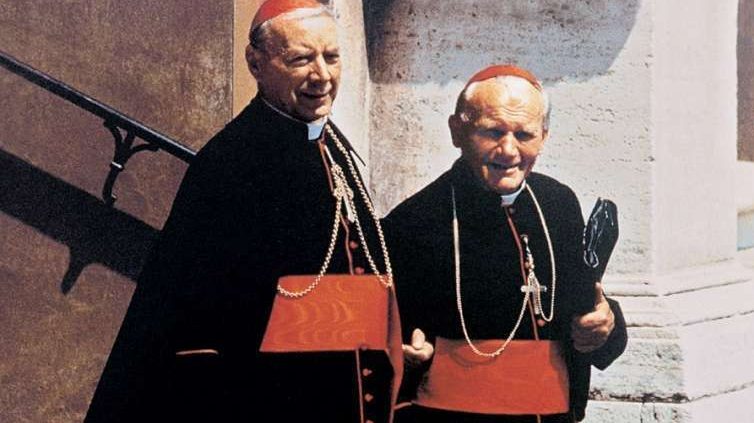The Polish parliament has declared 2021 the Year of Cardinal Stefan Wyszyński, in honor of the churchman who helped to preserve and strengthen Christianity under communist rule.
Resolutions of both houses of parliament -- the Sejm (lower house) and the Senate (upper house) -- hailed the achievements of the cardinal who led the Polish Church at the height of communist oppression and is expected to be beatified soon.
The resolutions were adopted by overwhelming majorities.
The Sejm’s resolution said: “In his priestly activity, the Primate of the Millennium paid attention to man’s inherent dignity, the source of all his rights.”
Wyszyński is known as the “Primate of the Millennium” because as Primate of Poland he oversaw a nine-year program of preparation culminating in a nationwide celebration of the millennium of Poland’s baptism in 1966.
The Sejm’s resolution also praised the cardinal for his robust defense of the Church’s independence under communism. It alluded to his 1953 letter to Poland’s communist leader Bolesław Bierut in which he refused to subordinate the Church to the authorities, declaring “Non possumus!” (We cannot). Wyszyński was imprisoned later that year.
“As a man of deep faith and love for the Church and the Fatherland, he sought agreement with the authorities. However, when the actions of the authorities of the Polish People’s Republic threatened the rights of the Church and the faithful, they heard the resolute ‘Non possumus!’ The Primate of Poland was imprisoned. He became a symbol of an unwavering attitude of opposition to evil,” said the resolution, dated Nov. 27 and passed by 387 votes to 48, with 16 abstentions.
In its resolution, the Senate described Wyszyński as “one of the greatest Poles of the 20th century.”
“It is impossible to accurately describe the merits and the role that Primate Stefan Wyszyński played in those years for Poland and the Church. He and John Paul II were together the great teachers of the nation and supported Poles in the most difficult moments in our homeland’s history,” said the resolution, dated Dec. 2 and passed by 77 votes to three, with two abstentions.
It continued: “He watched over the fate of the Polish Church in the darkest years of Stalinism with exceptional care. For his steadfast attitude towards the communist authorities, for his opposition to the destruction of social and ecclesial life -- expressed by the famous phrase ‘Non possumus!’ -- he was imprisoned for several years.”
This year marks the 120th anniversary of Wyszyński’s birth and the 40th anniversary of his death.
He was born on Aug. 3, 1901, in Zuzela, 60 miles north-east of Warsaw.
Before the Second World War, he engaged in social and educational work with Christian trade unions and organized the Catholic Union of Young Workers.
During the war, he became a member of the Home Army, Poland’s underground resistance movement, serving as chaplain of a hospital for insurgents in Laski, near Warsaw.
In 1946, Pope Pius XII named him bishop of Lublin and, two years later, as archbishop of Gniezno and Warsaw.
Wyszyński served as Primate of Poland until his death in Warsaw on May 28, 1981, months after the founding of the trade union Solidarity, which would lead to the collapse of Polish communism in 1989.
His beatification cause opened in 1989. On Oct. 3, 2019, the Vatican announced the approval of a miracle attributed to the cardinal’s intercession.
The miracle involved the healing of a 19-year-old woman from thyroid cancer in 1989. After the young woman received the incurable diagnosis, a group of Polish nuns began praying for her healing through the cardinal’s intercession.
The beatification was due to take place on June 7, 2020, in Warsaw. But in late April, the ceremony was postponed to an indefinite date because of the coronavirus pandemic.

